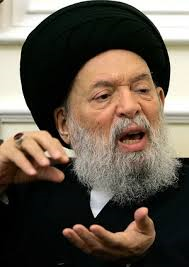Sudan’s Ruling Party splits by Reformist
Three leading reformers faced with expulsion from Sudan’s ruling party have decided to form a new party following a deadly crackdown on protests last month, one of them has said.
The name and structure of the new organisation will be revealed within one week, Abdallah added.
The announcement comes after an internal NCP investigative committee ruled that Abdallah, former sports minister Hassan Osman Riziq, and ex-presidential adviser Ghazi Salahuddin Atabani should be ousted for signing a memorandum criticising the regime’s crackdown on protests.
“We decided to establish a new party carrying the hopes of the Sudanese people,” Fadlallah Ahmed Abdallah, an MP with the governing National Congress Party (NCP), told the AFP news agency. “We have already put in motion a plan to establish this party.”
Atabani was the lead signatory, but 30 other prominent reformers also signed the memorandum, which was sent to President Omar al-Bashir and released to the public.
They said the government’s response to the demonstrations betrayed the regime’s Islamic foundations.
Abdallah, a former engineering commissioner in West Darfur state, said all the signatories planned to join the new party.
He said retired military officers will also join the new group, including retired brigadier Mohammed Ibrahim, who was sentenced to five years in prison in April for allegedly leading a coup plot against the regime last year.
In their memorandum, the reformers made a series of recommendations, calling for an independent probe of the shootings of civilians and a reversal of the price increases that prompted the protests.
Ahmed Ibrahim al-Tahir, who led the internal probe, said on Thursday that the NCP membership of Abdallah, Riziq and Atabani would be revoked if a 400-member party council gives final approval.
He said six others who endorsed the memorandum had been suspended from party activities for one year. They violated party rules by setting up a “parallel organisation” and by communicating with other political parties without NCP approval, Tahir said.
He added that the memorandum came at an inappropriate time, on September 27, when security forces were struggling against “criminals” and party unity was required.
Thousands of people, mostly poor residents of the Khartoum area, took to the streets when the government cut fuel subsidies, forcing retail prices up by more than 60 percent. Dozens were killed.
Bashir said the protests were part of an effort to end his 24-year rule, using “agents, thieves and hijackers.”


